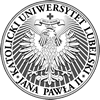Cognitive linguistics encompasses modern and innovative approaches to the study of language and mind and their relationship with embodied experience and culture. Language within the cognitive linguistic paradigm is perceived as an integrated branch of cognition rather than an autonomous faculty. Moreover, cognitive linguistics constitutes one of the most outspoken attempts to recontextualise grammar as it strives to endow meaning with its central position in the grammar architecture. We invite papers whose research lies within the cognitive linguistics enterprise and which address issues such as cognitive semantics, metaphor and metonymy, conceptual blending, linguistic categorization, prototypes, polysemy, image schemas and force dynamics, embodiment, cognitive sociolinguistics, cognitive linguistics and translation and gesture.
Slavic languages constitute a prolific area of research for linguists, as they have a rich inventory of affixes, show a relatively free word-order, and exhibit a wide array of consonants, especially consonantal clusters. In spite of sharing some common traits, languages of the Slavic group differ from one another as regards, for instance, word stress, or the presence of articles. Slavic languages have been extensively studied by linguists of various persuasions. They have stimulated much fruitful research in the Minimalist Program, nano-syntax, Distributed Morphology or CV phonology, inter alia. The session is meant to bring together current research into Slavic linguistics. We invite submissions on phonology, morphology and syntax of Slavic languages in various theoretical frameworks.
Call for papers
Talks and posters
We wish to encourage all linguists representing various theoretical models and practical applications to present their contributions during both oral and poster sessions in the following research areas:
- theoretical linguistics
- phonetics & phonology
- morphology
- semantics
- syntax
- corpus studies
- applied linguistics
- language teaching & language acquisition
- pragmatics
- discourse analysis
- translation studies
- socio- and psycholinguistics
as well as during the following special sessions:
Please consider that the leitmotif of LingBaW 2015 is: Mind, Language, Society: Towards a Unified Theory of Language Structure and Use.
Each paper presentation in an oral session will be scheduled for a 20-minute talk followed by a 10-minute discussion. Poster sessions will last about 40 minutes during which the authors are required to be present and ready to answer questions from conference participants passing by. The poster format is 100x70cm (vertical orientation). The language of the conference is English.
Abstract submission
Abstracts of no more than 400 words (including references) should be sent by 31st July 2015 in .doc format to our e-mail address: lingbaw@gmail.com. It is expected that any paper presented at LingBaW 2015 is original and has not been previously presented or published.
In the body of the email, please include the following information: title of paper, name of author, scientific degree, affiliation, research area (one from the above-mentioned) and form of presentation (speech/poster).
Abstracts will be reviewed anonymously; please do not put your name on the abstract itself.
Notification of acceptance will be sent by 15th August.
Conference fee
The conference fee is PLN 300 (€80) and includes conference materials, reception, refreshments and publication of the proceedings.
Proceedings
The preliminary deadline for submission of completed papers is 31st January 2016.
Further information
Should you have any questions, please feel free to contact us here or at lingbaw@gmail.com.

 LingBaW 2015
LingBaW 2015